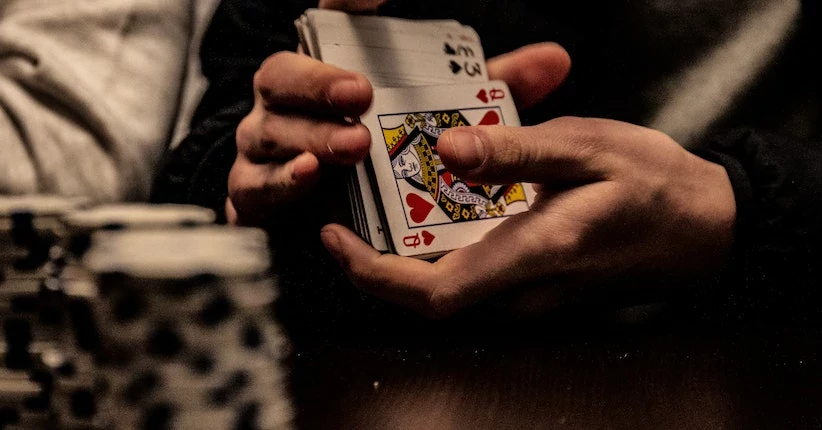How Poker Works: Rules & Hand Rankings

About 52 cards, one or two jokers, one table, and one winner. For centuries, this game has been played in a number of different settings, with a number of different variations. Nevertheless, the rules and basics surrounding poker will usually remain universally similar, no matter where and how you’d wish to play it.
Poker is one of the very few skill-based games offered by both real-money casinos, and free-to-play, web-based sweepstakes social casinos. This means that you don’t have the entire house stacked against you; you’ll be playing against other players, who will ideally be playing from the same equal footing as you!
You don’t need to put anything real on the line if you don’t want to, especially with the advent of new popular, free-to-play, virtual poker platforms like Global Poker. Granted, the popularity of poker is far from new, offline and even online. The Bicycle Card Co. dates the game's roots as early as the 16th century!
Likewise, online poker has also been around a block for a good bit of time; close to a quarter-century, as a matter of fact. According to PokerHistory.eu, the first ever online poker cardroom opened up shop in 1998, and operated for nearly 20 years until 2017.
Even though they eventually ceased business, we don’t expect the free and real money online poker industries to go out of business anytime soon. Research figures compiled by Custom Market Insights suggest that the global online poker market (for real money and social games) could exceed $170 billion USD by 2030!
In the midst of an increasingly booming poker business, where do you even begin to get down to business? The rules of the game might seem overwhelming and daunting for new players, but you’ll be happy to know that poker is surprisingly easy to learn! Let’s go over the rules of the game, and how they apply to the most ubiquitous versions of the game.
Poker Rules
Your standard game of poker is played with one-to-two packs of cards, each containing 52 real or virtual cards. Dealers at clubs and land-based casinos often use two decks out of convenience, to speed up the game and encourage more card variance (not to be confused with the variance you’ll see with slots).
You might be overwhelmed by all of the variants of this iconic game out there. You might be scratching your head wondering about the difference between other variants of poker vs. Texas Hold’Em, one of the most popular. But in the most general terms, most variations of poker can be broadly defined into three different categories:
- Community Card Poker: Games where a player’s card hand is dealt partly hidden, partly incomplete, and partly face up.
- Stud Poker: Games where players are dealt complete combinations of face-up and face-down cards across multiple rounds.
- Draw Poker: Games in which players receive a full (hidden) five-card hand from their dealer, and that hand could potentially be improved with new cards.
Community card variations of poker, like Texas Hold ‘Em and Omaha poker, are among the most popular. They’re particularly popular at social casinos and gaming platforms like Global Poker, thanks to the whole “community element”. No matter which variant of poker you play though, the end goal for players is almost always the same; to make the best five-card hand combination possible.
Which poker hand wins out? Generally speaking, here’s what your typical hand rankings and poker card rankings will tend to look like:
- Royal Flush: The rarest and highest-ranking hand combination. A king, queen, jack, ace, and 10 within the same suit.
- Straight Flush: Five cards of sequential value (i.e. 1-5 or 5-10) all of a matching suit. Like the royal flush, straight flushes are also pretty rare.
- Four Of A Kind: Around four cards of equivalent value, accompanied by a single “side card”
- Full House: A hand combination with three cards of equivalent value, and two other cards of equivalent value.
- Flush: Poker hand combinations with five cards all of the same suit.
- Straight: Hand combinations that don’t share the same suit, but do hold five cards of consecutive sequential value.
- Three Of A Kind: A hand combination with two side cards of differing values, and three cards of the same value.
- Two Pair: Hands with two cards of equal value, another two cards of their own equal value, and one additional side card.
- Pair: Two cards of the same equivalent value, and three miscellaneous cards.
- High Card: Five miscellaneous cards that don’t interact with one another, and don’t form any of the above, aforementioned hand combinations.
Most games of poker begin with a mandatory first play, known as blinds. Players will be able to begin their hand with a big blind, and a small blind for half the value of the big blind. You might be wondering where chips factor into the equation with these specific hand combinations in games of poker. Mandatory plays that don't occur at the start of the round are known as "antes".
We’re not talking about your preferred snack to scarf down through an intense session on Global Poker. So how are chips used in poker, exactly? Whether you’re playing for real money poker, or on a free-to-play poker platform like GP, chips act as an in-game currency of sorts, allowing you to pursue different actions through the game.
Chip value and chip distribution can vary from game to game. There’s no universal industry standard for chip rankings, but these rankings are often color coded from chip to chip. Generally speaking, ordered from the least value down to the most value, you could be playing with:
-
White chips
-
Red chips
-
Blue or Brown chips
-
Green chips
-
Black chips
-
Purple chips
-
Yellow chips
-
Orange chips
-
Gray chips
Chips are the currency that enables you to perform different actions in a poker game. What are those actions, and when should you perform them?
- Poker - When To Raise: Raises refer to increasing the stakes on your hand. It can be an advantageous move when you're confident that you have the best hand, or to gain more information on your opponent’s hands, as your opponents could also be forced to raise.
- Poker - When To Fold: In the immortal words of Kenny Rogers, you need to know when to fold ‘em! If your plays are costing you more chips than they’re returning, then you should probably fold, give up on your hand, and let go of the pot.
- Poker - When To Call: To call in poker, you match the stakes that another player has already put on the table. If you’re willing to risk more and raise the overall pot, this could be a good action.
-
Poker - When To Bluff: A bluff is when you deliberately play a weaker hand in the hopes that it will bait your opponent into folding their stronger hand. If you have a hunch that they might, then this move will be advantageous.
-
Poker - When To Bet: You make a bet (or play, in the case of free-to-play social poker) by placing the chips you wish to play into the prize pot.
Certain games govern a minimum or maximum amount of chips that can be risked with each hand and action. You have the option to go all-in with risking physical or virtual chips on certain hands, or in the case of free-to-play social platforms like Global Poker, risk nothing tangible at all!
Are Poker Chips Worth Money?
They can be, if you choose to play in a real-money poker cardroom at a land-based or online casino. But if you don’t want to tangibly risk anything in your chase for potential poker prizes, you don’t even have to!
With social gaming platforms like Global Poker, all you’ll ever really need to fork over are virtual tokens and FREE sweeps coins to play with virtual chips. You can potentially rake in money online with less risk than you would buying into a poker game.
Online Poker Without Money?!?!
Yes, it’s a thing!
Across most of the US and Canada, players 18 and older can enjoy a completely free-to-play virtual cardroom experience via Global Poker.
Furthermore, by signing up with our affiliate code “ODDS”, they can start playing with 40 FREE sweeps tokens, entirely on the house!
Read our full comprehensive review of Global Poker to find out how this social gaming operator allows you to play for potential prizes, and redeem those potential prizes.
/author-profile-picture/sarah-ryan.webp?v=1689703863)

Sarah's our Copy Editor. With a long career in hospitality, Sarah knows entertainment & gaming like none other!
More about Sarah RyanOnline Casino Promos
Related Stories
Get over $1,000 in casino bonuses




